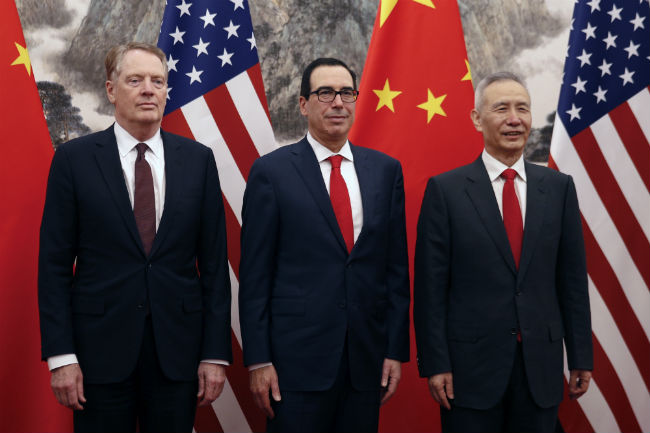New chapter in US diplomacy playbook - alienate both China and Russia

Business Times, May 15, 2019
ONE of the rules that a global power needs to follow when it operates in a multipolar international system is to ensure that other major powers would not gang up on it, among other things by not antagonising all of them at the same time and not providing them incentives to band together and mobilise their diplomatic and military power against what they come to see as a common enemy.
Henry Kissinger - former US Secretary of State and the master of Realpolitik-oriented foreign policy - recognised how the balance-of-power games are won, and during the 1970s advanced a geo-strategy that aimed at driving a wedge between Washington's two major international adversaries, the Soviet Union and Communist China.
Dr Kissinger and his boss, President Richard Nixon, embraced a policy of improving ties with both Moscow (through diplomatic détente) and Beijing (through the opening to China). The result was that the leaders in Moscow and Beijing came to regard Washington as a reliable strategic player that could help both communist regimes counterbalance the threats that each posed to the other. Those diplomatic moves helped stabilise the international system and opened the road for a process that led to the end of the Cold War, the collapse of the Soviet bloc and the integration of China into the global economy.
Now it seems that members of the Trump administration's foreign policy and national security teams, led by the president, have studied carefully that successful chapter in US diplomatic history - and decided to move in a direction opposite to that pursued four decades ago by president Nixon and secretary Kissinger, and alienate both China and Russia at the same time, encouraging them to cooperate in challenging American global power.
No one would deny that Beijing and Moscow are posing serious challenges to US strategic and economic interests around the world. Russia is a nuclear military power, led by an authoritarian anti-Western leader whose decision to invade Ukraine and absorb the Crimea reflected his determination to destabilise the post-Cold War status quo in Europe. And China is a rising global economic power that has violated many rules of the US-led liberal international trade system and that is involved in disputes with America over Taiwan and the territorial status of islands in the South China Sea. Washington needs to find ways to manage its relationship with these two powers and resolve the problems with them, and if necessary to project resolve in dealing or working with them in response to international crises, like those involving North Korea and Syria.
Instead, officials and lawmakers in Washington seem to be intent on escalating the tensions with China and with Russia. While the Trump administration has been promoting an aggressive mercantilist strategy through a series of trade battles with China - an approach that enjoys bipartisan support on Capitol Hill - Democratic and Republican lawmakers continue to demonise the Russians, creating the impression that the Cold War was still going on.
Not a day passes in Washington without more threats to impose new sanctions on China and Russia, the new global bogeymen. No one should therefore be surprised if Beijing and Moscow would discover that they have common interests in containing the US. And if that happens, expect the China bashers and Russia haters in Washington to argue that that only proves what they had known all along - that both powers are America's enemies.
Back